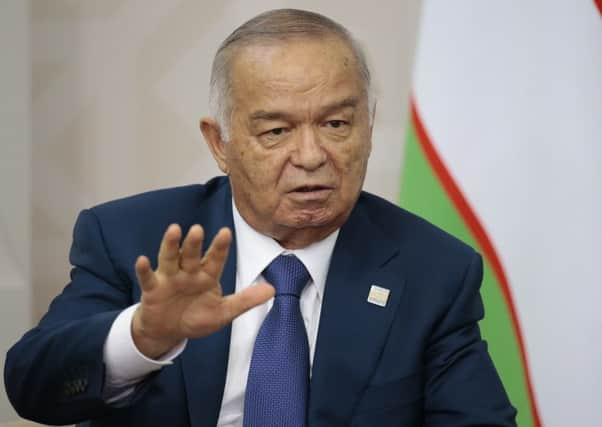Uncertain future as Uzbek leader is confirmed dead


Mr Karimov, who had been in power since 1989, was taken to hospital last week after a brain haemorrhage.
He will be buried today in the city of Samarkand, his birthplace, the government said in a statement.
Advertisement
Hide AdAdvertisement
Hide AdHis younger daughter, Lola Karimova-Tillyaeva, said in a social media post on Monday that he was in intensive care. Yesterday, she posted again, saying: “He is gone.”
Little other information was available.
Media freedom and human rights have been harshly repressed ever since Mr Karimov became leader, while the country was still a republic of the Soviet Union.
Mr Karimov has no clear successor and there is no legal political opposition. He often justified his strong-arm tactics by highlighting the danger from Islamist militancy in the mainly Muslim country, which borders Afghanistan.
“The death of Islam Karimov may open a pretty dangerous period of unpredictability and uncertainty in Uzbekistan,” said Alexei Pushkov, head of the Russian parliament’s foreign affairs committee.
Under the Uzbek constitution, if the president dies his duties pass temporarily to the head of the senate until an election can be held within three months.
However, the head of the Uzbek senate is regarded as unlikely to seek permanent power and Mr Karimov’s demise is expected to set off a period of jockeying for political influence.
Mr Karimov was known as a tyrant with an explosive temper and a penchant for cruelty. His troops machine-gunned hundreds of unarmed demonstrators to death during a 2005 uprising, he jailed thousands of political opponents.
He came under widespread international criticism from human rights groups, but because of Uzbekistan’s location as a vital supply route for the war in neighboring Afghanistan, the West sometimes turned a blind eye to his worst abuses.